Notebook
-
 Earth
Earth50 years ago, scientists were looking for ways to predict earthquakes
Though earthquake prediction remains elusive, early warning systems can help keep people safe.
-
 Health & Medicine
Health & Medicine50 years ago, an experimental drug hinted at serotonin’s many roles in the brain
Excerpt from the October 3, 1970 issue of Science News
-
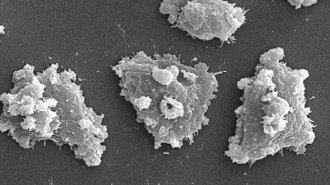 Microbes
Microbes50 years ago, scientists were on the trail of a brain-eating amoeba
In 1970, scientists were studying a brain-eating amoeba that had been implicated in a newfound disease. Today, infections by the parasite are still poorly understood.
-
 Health & Medicine
Health & Medicine50 years ago, scientists were trying to develop a low-emission car
Electric cars have surged in popularity, but the vehicles still contribute to greenhouse gas emissions.
-
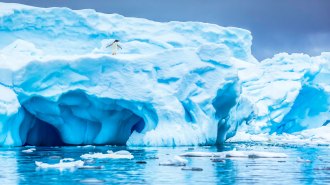 Earth
Earth50 years ago, scientists clocked the speed of Antarctic ice
Today’s instruments offer a more precise view, and reveal the effects of climate change.
-
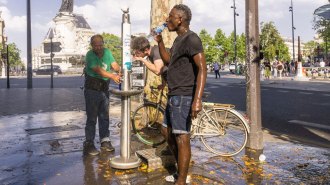 Climate
ClimateHurricanes have names. Some climate experts say heat waves should, too
A newly formed international alliance aims to raise awareness about extreme temperatures and protect vulnerable populations.
By Jack J. Lee -
 Astronomy
Astronomy50 years ago, Mauna Kea opened for astronomy. Controversy continues
Current plans to build a new telescope on the volcano sparked the latest conflict.
-
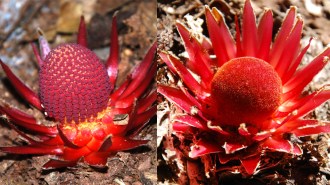 Plants
PlantsThis parasitic plant consists of just flashy flowers and creepy suckers
With only four known species, Langsdorffia are thieves stripped down to their essentials.
By Susan Milius -
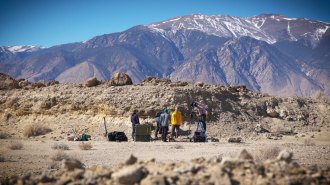 Space
SpaceTo rehearse Perseverance’s mission, scientists pretended to be a Mars rover
Seven Mars scientists pretended to be the Mars Perseverance rover on a training exercise in the Nevada desert.
-
 Animals
AnimalsHow Yellowstone wolves got their own Ancestry.com page
Since the wolves’ reintroduction to the park, 25 years of devoted watching has chronicled bold moves, big fights and lots of puppies.
By Susan Milius -
 Space
Space50 years ago, NASA prepared to launch America’s first space station
In 1970, NASA was building Skylab. The orbiting laboratory led to many scientific firsts but was plagued by technical difficulties.
-
 Planetary Science
Planetary ScienceAn asteroid’s moon got a name so NASA can bump it off its course
A tiny moon orbiting an asteroid finally got a name because NASA plans to crash a spacecraft into it.